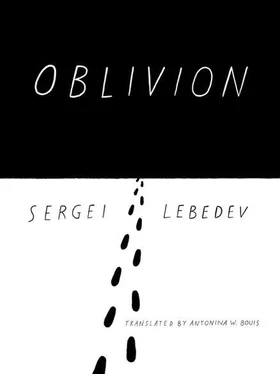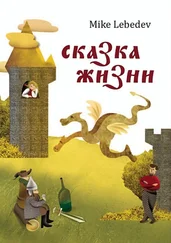Grandfather II did not give up; he saw that the boy was still not himself, and he thought it was because he was taking a long time—an incommensurately long time—getting over the loss of the toy. He behaved as most adults would—he decided to replace the toy he took away with a present, to intercept the inner gaze focused on the loss with something new, significant, and valuable. This is the action of people for whom all life events are basically equivalent, one easily replaced by another; used to dealing this way with people, Grandfather II probably did not know that there were things that were irreversible—not physically, like death or injury—but because the most important aspect of a relationship happens in a single moment, beyond which everything has a future dimension based on trust, or else everything is forever too late.
Grandfather II started the quarry—and everything was too late, the town was doomed to the funnel; for him and his son the moment—everything is too late—had also come, but he thought and thought about what present would please the boy, how to show a father’s generosity, and at last came up with a gift with a significance that would define his son’s adolescence and maturity.
On Grandfather II’s orders, they searched the camp and found another carver, this one in his right mind. For several months he did not go out to the sites, slept only three hours a night, at work on his assignment; Grandfather II looked in occasionally to check up and give advice, leaving enough shag for a couple of cigarettes: he didn’t have to pay the carver too much, his life was in Grandfather II’s hands as it was, and the carver labored, extending his existence with each curl of wood, with each movement of his knife—Grandfather II could send him to the mines, and the elderly prisoner would die after a month of digging.
But despite his desire to live, despite his desire to please Grandfather II, the work did not go well; the commission was beyond the prisoner’s abilities: he was supposed to create the camp in miniature. Use a cobbler’s hammer to knock together barracks with wooden bunks, erect watchtowers, make the delousing room, the gun room, the steam bath, warehouse, and other buildings—all tiny, to fit a special base and be placed on a table; he had to carve and paint the convoy soldiers, sheepdogs, cooks, steam bath attendants, all the service people, and most important, the prisoners; make wheelbarrows with buttons for wheels, pickaxes out of furniture nails, shovels out of tin, boilers, furnaces; my new friend the engraver was assigned to help him in the fine work. The engraver used a magnifying glass to model the soldiers’ guns, fashioned bits of a broken cup into porcelain isolators for wooden poles using the finest wire which pricked your finger if you touched the end, and one of the free seamstresses sewed sheepskin jackets and peacoats for the guards and prisoners. Snow banks of cotton were placed around the camp; it was meant to be eternal winter, but the electrician made a dull, cheese-yellow sun from a 20-watt bulb that moved around the camp on a special arm the way the sun moves across the tundra in summer without going below the horizon.
The entire camp universe was being created by the efforts of the carver, engraver, and seamstress, but the further they worked, the more they felt they were doing something unseemly, almost forbidden; they were violating some unclear law; the carver and engraver confessed this to each other and even considered burning the toy camp by starting a fire in the workshop, but fear stopped them; they saw how excessively attached Grandfather II was to his idea, he came by more frequently, stayed longer, examining the toy, and it seemed that he had forgotten it was intended for his son. Grandfather II would chase them out of the workshop and remain there alone, they watched through a crack how the warden, illuminated by the flames of oil lamps and the fire of the opened furnace, with a dark face, too tall for the low ceiling, moved the figures of prisoners and soldiers, halting like God above the newly created earth, and deciding something in those moments when he silently smoked, exhaling on the toy barracks, as if their chimneys were smoking, and the draft blew smoke onto the cotton snow.
Three months later the toy camp was ready; Grandfather II organized a viewing of the work. A windup locomotive ran down wire tracks with wagons loaded with real ore, billowing caustic soot: inside it was a boiler with burning tar; the electric sun made its slow orbit; the excavator could bend and unbend, the guards could aim their rifles, and the toy shepherd jaws opened revealing red mouths—the seamstress had used red calico freely; the toy camp was exactly like the real one, except for one missing figure—Grandfather II was not there, even though inside the camp office there was a thimble-sized bust of Lenin, carved from dog bone—that was the only bone there was—and on the wall a poster with Stalin’s profile, made from a postage stamp.
Grandfather II decided that the gift had to be a surprise; the anniversary was approaching of the day when the quarry gave its first ton of ore, and they were planning to celebrate. Grandfather II took these production anniversaries very seriously, they meant more to him than birthdays or other holidays like May Day. He usually celebrated in the laboratory where they tested the quality of the ore; however, he decided to betray his habit.
That evening Grandfather II brought the gift into the boy’s room; his son, he thought, was sleeping, and he set up the toy camp on the table and covered it with canvas, so the boy could open it himself.
But the morning brought something else: they found the boy shivering in the corner, wrapped in the canvas; the first snowy dawn was trying to break through the thick clouds, a watery, yellow blister of light appeared in the sky, and that light poured into the room through the rectangle of the window, illuminating the table and Grandfather II’s present.
The camp was smashed—everything down to the last connection, nail, thread knot, wire twist; the boy must have worked all night, destroying the toy, putting all of himself into the destruction, and now he trembled with sleeplessness, exhaustion, and fear. His fingers were bleeding, his nails were torn, the canvas was splotched with blood; he had managed to break it all noiselessly, silently, as if performing the greatest exploit of his life—not just the seven years he had lived, but for his whole life going forward; he was afraid, the room smelled of urine, and perhaps he was ready to give up his free will and wished it all to come back together, for the camp to rebuild itself, but the dawn entered the room, and the fluid objects of the night acquired their final, hard, daytime shapes, and not even the specter of desperation could re-create the broken camp.
Grandfather II staggered in the doorway. He would probably have been less shocked had the real camp been destroyed. On the evenings when he came to the workshop and threw out the carver and engraver to be alone with the toy, he enjoyed his own idea so much that he might have kept the toy camp in his office if that pleasure—as perceived by others—did not smack of eccentricity.
This miniaturized, facsimile camp truly did belong to Grandfather II. There was something not in the least metaphorical about the change in scale, in the optical magnification of his own figure, not from pure narcissism but as an expression of the correct proportions in his view: Grandfather II in his own estimation was not a god, not a master, he was himself, a man, and the fact that he was master of life and death over other men without considering himself something more simply proved to him that in fact he was truly greater. He gave his son a toy camp so that he would share his father’s destiny, accept his own from his father’s hands. Barracks outside the windows, whichever way you looked, barracks on the table—Grandfather II had sent his son to prison camp, excluding everything that was not-camp.
Читать дальше












